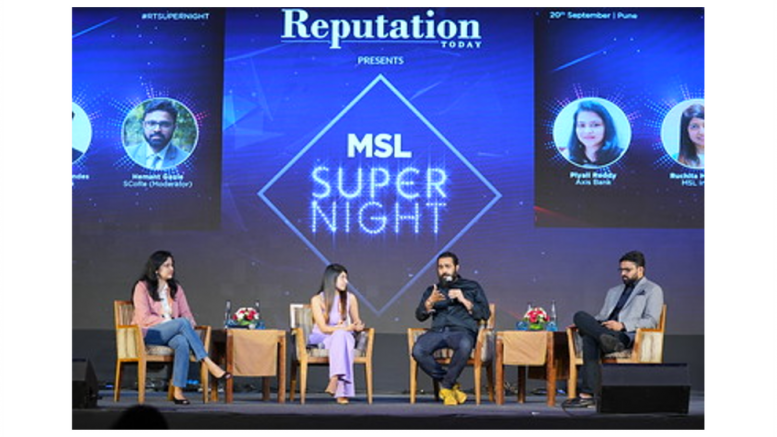Public Relations today is adapting to a rapidly changing media landscape. With traditional outlets evolving, PR professionals must leverage digital platforms, social media & content marketing to reach their audiences. Effective storytelling, crisis communications and influencer partnerships are essential skills. Additionally, strong analytics capabilities must be developed – to measure campaign success and to provide data-driven insights to clients and stakeholders. Above all, building strong relationships, maintaining transparency, and prioritising authenticity are crucial for establishing and maintaining a reputation in the ever-changing PR landscape.
PR is now largely a digital-first strategy, rooted in online channels like social media, online news sites, and online events. Technologies like data analytics and AI are driving smarter, more targeted, and more personalised PR strategies at scale.
And, as we look ahead towards 2025, it’s clear that the PR landscape will be significantly different from what we see today.
At #PRAXIS11, a lively Panel Discussion titled “The Future of Indian PR – Next 25” took center stage, shedding light on the transformative journey of Public Relations, and more importantly, what lies ahead. This was based on the insightful Report by SCoRe in partnership with MSL, which decodes the changing landscape of the Indian PR industry with AI, big data analytics, social media, ESG & DEI initiatives. The research also laid out some valuable insights into how these forces will redefine the landscape of public relations in the coming decades.
Moderated by Hemant Gaule, Dean, SCoRe, the conversation featured leading voices from the industry: Piyali Reddy from Axis Bank, Ruchita Masrani from MSL India, and Sandeep Fernandes from Skoda India. The discussion painted an exciting future for PR – defined by innovation, adaptability and an unshakable focus on reputation management and relationship building.
Reputation Management: The Future of Trust in PR
Hemant Gaule kicked off the discussion by asking how reputation management would shape PR in the next 25 years. Piyali Reddy confidently stated that reputation management has been climbing the ranks of importance, and it’s no longer the responsibility of just one team – it’s an organisational priority. She pointed out that employee advocacy could be a game-changer for brands, transforming employees into ambassadors for reputation building. “Crisis management is the most critical factor in today’s PR, and with social media’s far-reaching impact, the opportunities for brands to manage reputation and stay ahead of crises are huge,” Piyali remarked.
She added that while AI will play a key role in managing data, “the human touch will become more important than ever in PR.” Trust, empathy, and personal relationships will drive success, even in an increasingly tech-driven world.
The PR-Client Dynamic: Making Collaboration Strategic
As the conversation shifted to client relationships, Sandeep Fernandes passionately shared insights on how brands like Skoda India collaborate with digital agencies. He cited the example of Skoda’s partnership with Nutcracker, saying, “We ensure that the agency is totally entrenched in our brand story.”
Hemant asked how the relationship between PR firms and consultancies could be further strengthened. Ruchita Masrani was clear in her response: “PR will become more strategic, and we need to work closely with business leaders. If we can demonstrate that we’re making a real impact, it will motivate us to push even harder.” The panel agreed that as PR professionals focus on understanding the client’s objectives more deeply, collaboration will only get stronger, bringing results that resonate beyond media coverage.
Innovation, AI & the Future of PR
Looking to the future, the panel was unanimous: AI and data analytics will reshape PR, but empathy, creativity, and adaptability will remain at the core of successful communication. Piyali predicted that PR will continue to expand in influence and scope, driven by AI and digital tools, but “delivering trust” will remain the ultimate goal. We delivering trust said Ruchita and we need to look at how do we play with data.
Sandeep’s enthusiastic final thought closed the deal: “Be more empathetic and have ‘fun’ with what we do – and everything will work out!” His light-hearted, yet profound advice highlighted the balance of passion & professionalism that PR professionals need – to navigate the fast-changing universe ahead.
The views and opinions published here belong to the author and do not necessarily reflect the views and opinions of the publisher.






Be the first to comment on "Collaboration, Innovation & Fun: PR’s Path to the Future"